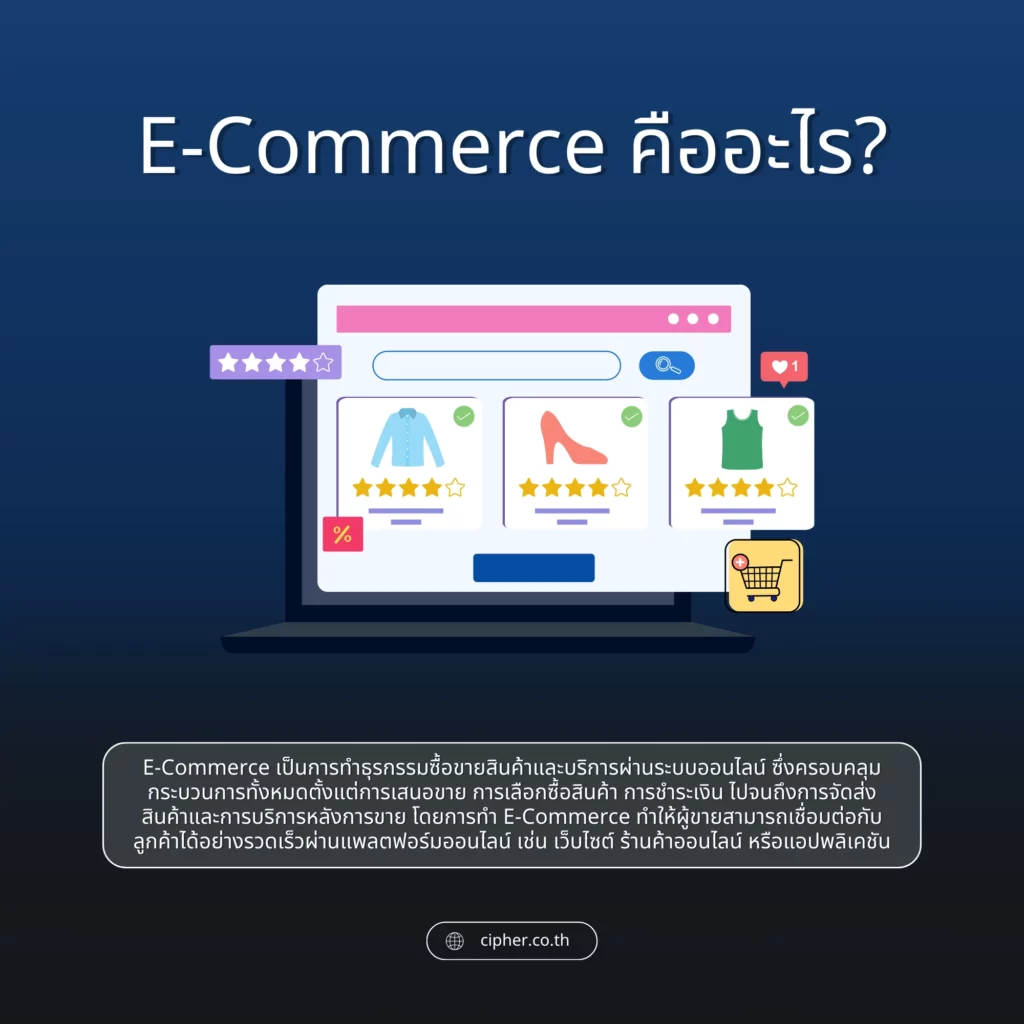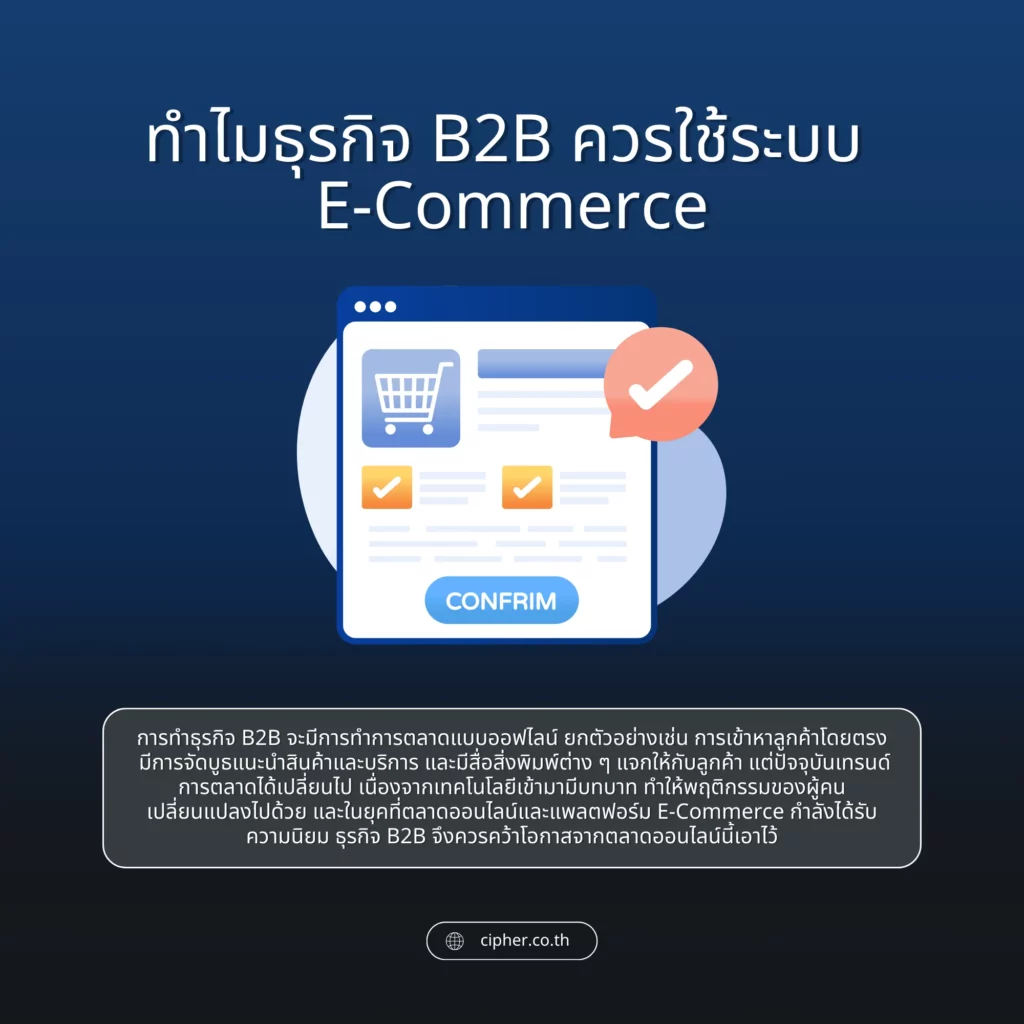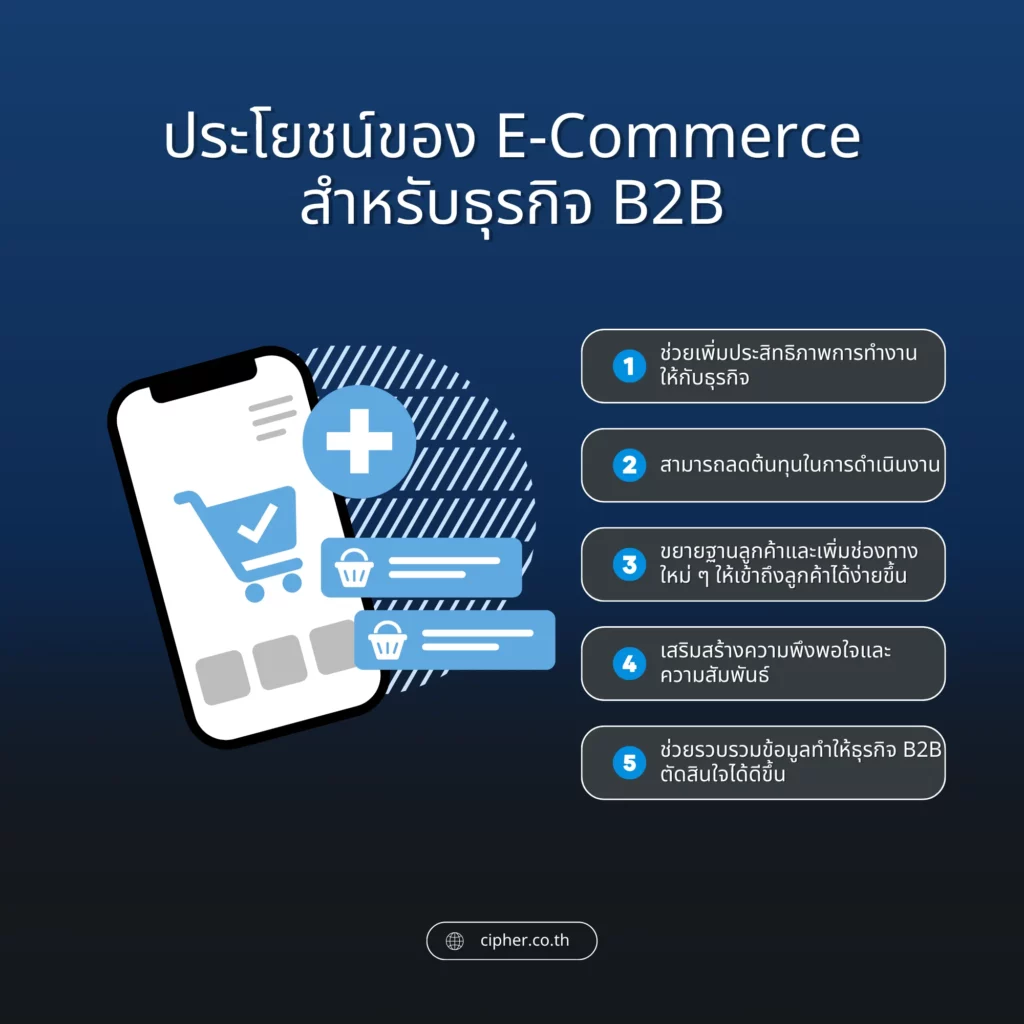Table of Contents
Leveraging E-Commerce for B2B Businesses
B2B businesses often face obstacles and challenges in online business. But many businesses have succeeded in applying e-commerce to B2B, an online inter-enterprise trading system, making it an important advantage for business growth and market expansion. This article summarizes the benefits of e-commerce for businesses. B2B to help the business succeed!
What is E-Commerce?

E-Commerce is an online or Internet trading of products and services that span the entire process from offering, selecting, paying, to shipping and after-sales services. E-Commerce enables sellers to quickly connect with customers through online platforms such as websites, online stores or applications. E-Commerce also serves as a medium for advertising to connect information or users’ needs directly to their target customers, allowing them to expand their markets and bring products to market more quickly.
Why should B2B businesses use e-commerce?

Most B2B businesses are marketing offline. For example, direct customer access, product and service booths are set up and distributed to customers. However, the marketing trend has changed due to technology’s role in changing people’s behaviour. In the era of online and e-commerce platforms, businesses are becoming popular. B2B should seize this opportunity from the online market. Not only will it help generate sales, but it will also make progress through various channels, such as Shopify Implementation Service from the Shopify Plus platform with customization features for B2B businesses with easy-to-use features. The company has a variety of features and is able to integrate efficiently with CRM, making it very cost-effective.
Benefits of E-Commerce for B2B Businesses

1. Leveraging E-Commerce for B2B Businesses to Help Improve Productivity
The benefits of E-Commerce for B2B include improved operational efficiency. E-Commerce simplifies the handling of orders, including inventory, invoice and transportation management, simplifies operations and reduces unnecessary processes. As a result, time can be used to improve the efficiency of marketing strategies.
2. E-Commerce can reduce operating costs.
Investing in B2B e-Commerce helps reduce costs in many areas, including document management and sales staff fees. It also reduces the cost of document delivery and travel expenses required for direct customer contact, and, more importantly, saves time and time to complete tasks, improving customer and target satisfaction.
3. E-Commerce is able to expand its customer base and add new channels to make it easier to reach customers.
E-Commerce for B2B businesses makes it easier for companies to expand their markets, whether it’s accessible to new customers in the country or abroad. E-Commerce also allows companies to access previously difficult markets and attract new customers who search for information online.
In addition, the E-Commerce system enables B2B businesses to sell and service 24 hours a day. Customers can conveniently place their orders without waiting for the company’s business hours. Customers can easily and quickly change information about products, prices and conditions, so they do not lose their sales opportunities.
4. E-Commerce can enhance customer satisfaction and relationships.
E-Commerce is also able to better manage customer experience. B2B can tailor the experience to each customer’s needs, whether it’s offering special privileges, order information, or product information to suit their needs. This will help increase customer satisfaction and build confidence. This will help customers resume purchasing and build lasting relationships for their customers or target groups.
5. E-Commerce can help gather information, making better decisions for B2B businesses.
Another benefit of E-Commerce is the collection and analysis of in-depth information about customer buying behavior. This information can be used for new product development or service improvement. It can also be used to anticipate future customer needs, enabling businesses to plan and adjust marketing strategies beyond competitors.
Conclusion
E-Commerce for B2B businesses can benefit business owners by increasing efficiency, reducing costs, expanding markets and strengthening customer relationships. Therefore, the adoption of E-Commerce for B2B business operations should not be overlooked.
If businesses want to grow and compete in rapidly changing markets and apply E-Commerce in their marketing strategies, B2B can immediately contact E-Commerce experts for advice.





